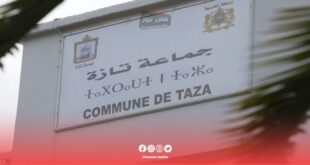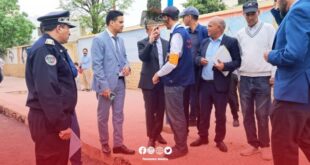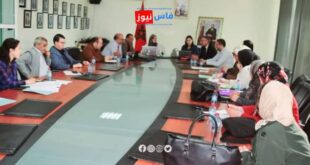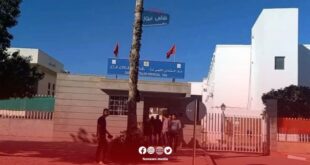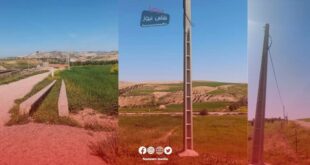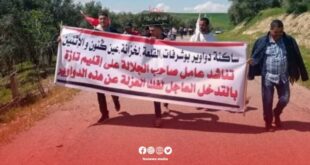The Taza branch of the Moroccan Association for Human Rights (AMDH) issued a statement this week outlining the deteriorating health situation in the Taza region.
The statement was based on several complaints from citizens, communications and statements from trade union organizations in the field of health, as well as reports from local, regional and national media outlets and information posted on social media platforms.
Below is the text of the statement:
On Saturday, June 22, 2024, a meeting of the branch office was held to discuss the health situation in the Taza region, especially at the Ibn Baja Regional Hospital Center. The meeting addressed the most important developments related to the health sector in the region, in light of the deteriorating health supply, and in the context of a worn-out health system.
Within the framework of the thematic reports that the local branch of the AMDH in Taza used to carry out in monitoring the situation of economic, social and cultural rights, by the monitoring and follow-up committee, the latter prepared a detailed report in the field of the right to health as an integral part of human rights that is closely linked to it, which sheds light on the health situation in Taza region, in order to identify the actual reality of access to the right to health in this region and diagnose the imbalances that impede the realization of this right and its development, based on the international references of this right recognized by international and regional human rights covenants.
The report was based on several complaints received by the branch from citizens, as well as on statements and communiqués issued by various trade union organizations working in the field of health, as well as on reports published by various local, regional and national media outlets and social media pages, especially those related to the health situation at the Ibn Beja Regional Hospital Center. According to the 10-page report, the following irregularities were identified:
- At the regional level:
Severe shortage of medical and nursing staff, especially in rural health centers, with 22 health centers without a doctor and 17 health centers with only one nurse.
The dilapidation and obsolescence of many buildings of health institutions.
An acute shortage of equipment, basic medical supplies and medicines.
An acute shortage of medical and nursing staff in the health centers of Tahla, Ouadamlel and Aknoul.
Few health centers have a maternity center.
The lack of proximity hospitals, which are urgent demands of the population in Tahla, Ouadamlel, Aknoul and Tainast. - At the level of the Ibn Beja Regional Hospital Center
The huge shortage of medical and paramedical staff, which affects the services of various health services at the Ibn Baja Regional Hospital Center, especially the emergency department and the maternity department.
Frequent and prolonged interruptions of many surgeries due to the breakdown of poorly maintained medical equipment.
Running out of medicines, medical supplies and pharmaceuticals in all hospital departments, and forcing indigent patients to buy them.
The inability of the blood bank to meet the needs of the region’s patients, forcing them to wait for weeks to obtain a bag of blood.
The absence of many
Shortages of medical equipment, treatment and medicines.
Significant delays in surgeries that require immediate intervention without delay.
Burdening patients with additional payments and expenses related to the purchase of surgical supplies…
The appointments given to patients in the hospital for tests and surgeries are characterized by many delays, up to several months; for example, appointments for diagnostic mammograms may exceed a year…
A shortage of radiologists, as the hospital has only one doctor in the radiology department instead of the four doctors it used to have, which negatively affects the course of treatment, and has led to months of waiting for radiology tests, with a real risk to patients’ lives, especially in urgent cases such as strokes, heart attacks, and victims of work accidents, which require rapid and effective intervention.
An acute shortage of doctors in many specialties, especially radiology, anesthesia and resuscitation, obstetrics and gynecology, neurosurgery… in addition to the huge shortage of general practitioners at both the hospital and health centers.
An acute shortage of nursing staff in all specialties, which negatively affects the proper functioning of many vital services in the hospital, such as the emergency department and the maternal and child health department… The same shortage is recorded at the level of rural and urban health centers.
The existence of chronic and pervasive management problems in the health administration in the region.
The lack of seriousness of regional and local officials in dealing with the structural issues that affect the quality of the health offer in the region, despite years of trade union protests.
- At the level of labor rights
Lack of positive response to the demands of health unions in the region.
The persistence of the Treso workers in Ibn Baja Hospital and health centers in Taza region.
The failure to finalize the private security deal for the regional hospital, which may make medical and nursing staff vulnerable to violent incidents.
The Taza branch of the Moroccan Association for Human Rights, noting the deterioration of health services and the decline in access to treatment for citizens in the region, the bankruptcy of the health system and its failure to provide adequate protection for citizens, calls on the Ministry of Health and Social Protection to intervene to
Improve medical services in both the Ibn Beja regional hospital and urban and rural health centers.
Provide adequate medical and nursing staff, technicians and all necessary means to ensure the quality of medical services.
Rehabilitation of the psychiatric and mental health unit.
Reopening and rehabilitating the Ibn Rochd Hospital in Upper Taza to alleviate the growing pressure on the regional hospital.
Expedite the appointment of gynecologists and obstetricians and provide a minimum level of health services for pregnant women.
Urge the regional delegate for health and social protection to open a serious and responsible dialogue with the representatives of the health workers on the basis of the demand files to avoid the tensions in the health sector in the region due to the professional issues accumulated over the years.
Resolving the issue of Treso workers and expediting the conclusion of the private security deal for the regional hospital.
Source : Fes News Media
 فاس نيوز ميديا جريدة الكترونية جهوية تعنى بشؤون و أخبار جهة فاس مكناس – متجددة على مدار الساعة
فاس نيوز ميديا جريدة الكترونية جهوية تعنى بشؤون و أخبار جهة فاس مكناس – متجددة على مدار الساعة


